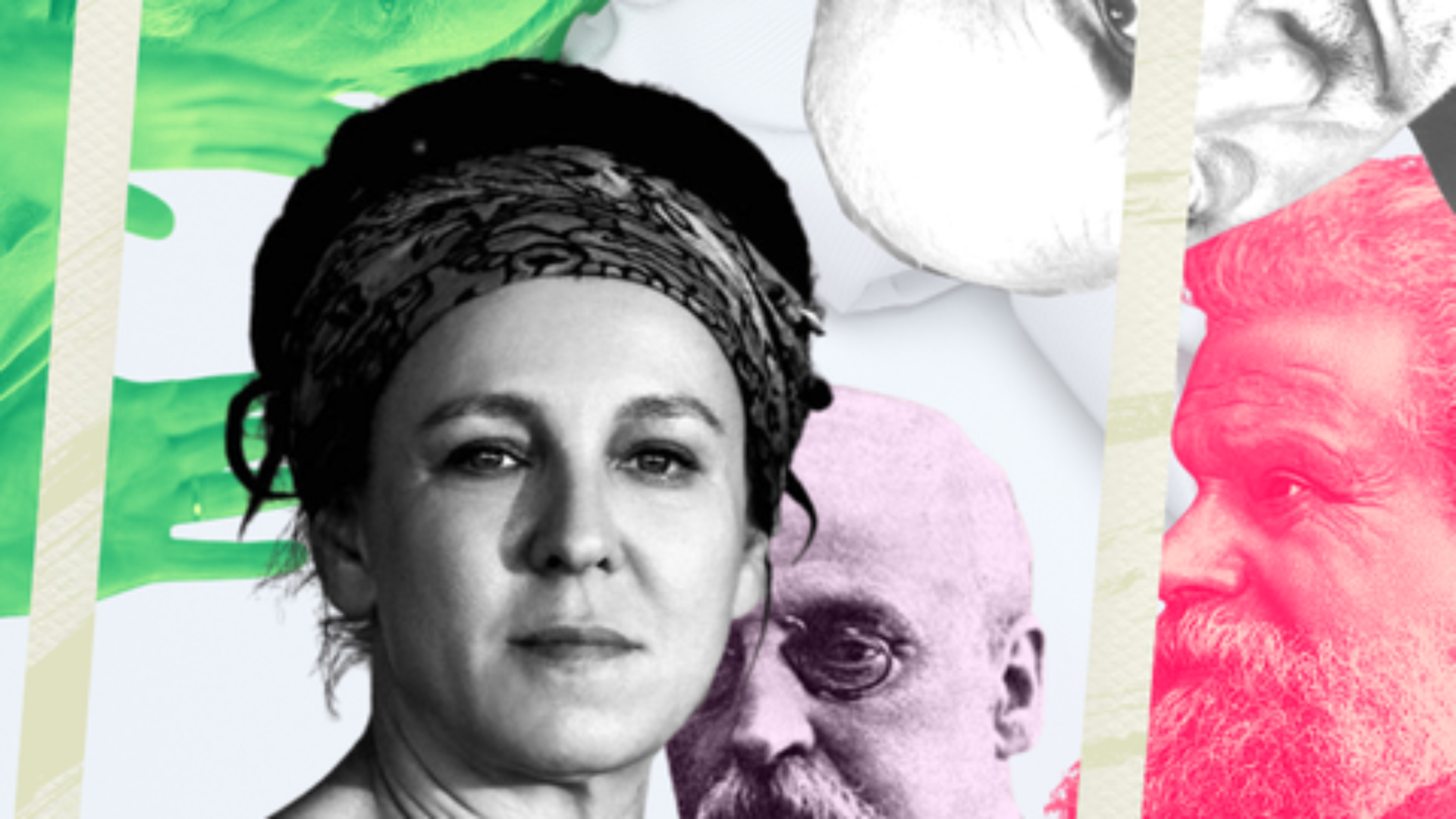Tadeusz Sławek
![]() Świat i rzeczywistość. O radości jako współ-istnieniu
Świat i rzeczywistość. O radości jako współ-istnieniu
Starting from Coleridge’s ode On Dejection the essay attempts to define complex relationships between dejection and joy also in the domain of pedagogy conceived of as the exercise in practicing the art of living. Faust’s complaint of the elimination of joy from teaching and learning clearly aims at a larger social project: a society of people who are active and critically assess social and political reality of the day. “Training”, which education has become, adapts the individual to perform repetitive tasks in order to adapt well to an increasingly mechanistic world. Already in the early decades of the 19th century, Thomas Carlyle said that if he had been looking for a single term to describe the new age, he would have found it in the word 'mechanical’. We understand joy as an inclusive rationality that not only allows for that which does not submit to the rigours of the currently valid understanding of rationality, but is capable of taking a step back on the path of “progress” made under the sign of rationality. It turns out to be necessary to accept the postulate of multiple ways of domiciling in the world, all of which apply in a “mild way”. Such mildness creates the right aura for the joy that comes from the practice of co-being with others.
Łukasz Musiał
![]() Czy radość może być w literaturze równie filozoficzna co melancholia? Garść wstępnych myśli
Czy radość może być w literaturze równie filozoficzna co melancholia? Garść wstępnych myśli
Can joy be as philosophical in literature as melancholy? The article is devoted to this question. In discussing the issue, the author focuses in particular on the 18th century and Johann Wolfgang Goethe’s novel The Sorrows of Young Werther. The publication of this novel and its reception can be considered as a turning point in the history of so-called high literature, which from then on will generally favor melancholy as the central existential human experience, and as the most philosophical one.
Péter Pátrovics
![]() Językowy obraz radości w „Pieśni słonecznej" św. Franciszka z Asyżu
Językowy obraz radości w „Pieśni słonecznej" św. Franciszka z Asyżu
W artykule autor podejmuje próbę rekonstrukcji językowego obrazu radości występującego w Pieśni słonecznej św. Franciszka z Asyżu. Podczas rekonstrukcji szczególną trudność sprawił fakt, że słowo „radość” nie występowało w badanym dziele wprost, zatem treści do niego nawiązujące i z nim związane można było badać jedynie pośrednio. Konieczność umieszczenia „kantyczki” w szerszym kontekście sprawiła, że nieuniknione było zarysowanie epoki i uwzględnienie pewnych elementów biograficznych, a złożoność analizy wymagała, oprócz literackich, zastosowania aspektów językowo-historycznych, tekstologicznych, przekładowych i teologicznych. Analiza dzieła polegała na uwzględnieniu oryginalnej włoskiej wersji tekstu i jej tłumaczenia na język angielski, eksploracji psychologicznych i teologicznych głębszych warstw obrazów poetyckich, którymi posługiwał się św. Franciszek, oraz ukazaniu związanych z nimi treści mitologicznych. W trakcie dociekań autor niniejszego artykułu doszedł do wniosku, że pierwotne źródło radości, jakie przepełnia św. Franciszka, gdy śpiewa w swojej pieśni o stworzeniach, nie jest w istocie z tego świata, ale jest transcendentne.
Katarzyna Kuczyńska-Koschany
![]() Radości Rimbauda. Rekonesans
Radości Rimbauda. Rekonesans
The article serves as an attempt at initial exploration of the topic of joy in Rimbaud’s poetry. It is a research survey, richly inlaid with excerpts from Arthur Rimbaud’s works in the original and translation. The study makes a cross-sectional attempt at a hermeneutical and axiological description of the poetry of the author of The Drunken Boat, considering the interpretative key in the form of the indicated motif of joy. The author tries to see the chosen penetration area from a deeper perspective, which allows the details of detailed analysis, processed philologically, to be combined into comprehensive, synthetic images.
Jacek Gutorow
![]() Radość patrzenia. O „Godzinach włoskich" Henry’ego Jamesa
Radość patrzenia. O „Godzinach włoskich" Henry’ego Jamesa
This short article interprets Henry James’s Italian Hours (1909) as a series of insights into a phenomenology of seeing, treating the latter as both opening towards the surrounding reality and an act of self-consciousness. James’s phenomenological awareness is informed by his sense of joy, which turns out to be something more than mere delight with beautiful sights and scenes – it is in fact a joy of discovering the world’s freshness and novelty.
Dariusz Czaja
![]() Baśń włoska. Pasaże radosne
Baśń włoska. Pasaże radosne
Images of Italy by Pavel Muratov, the eminent Russian historian of art and the excellent writer as well, have been published over than one hundred years ago. This masterpiece seems to be very well known today and is commonly regarded as a very sophisticated guide of Italian art and architecture. The author presents that such kind of conceiving this legendary book is a typical form of misreading. On the contrary: he emphasizes its cognitive and literary merit. Finally, he reveals the real content of Images of Italy as a special form of Nietzschean gaya scienza, and at the same time, as a still vivid source of the existential joy.
Szymon Wróbel
![]() Jacques Tati albo nowoczesna komedii
Jacques Tati albo nowoczesna komedii
Tekst próbą interpretacji filmów Jacquesa Tati. Głównym przedmiotem analizy eseju jest pojęcie „humoru” oraz „komiczności”. Autor zastanawia się nad źródłami komedii, jej mechanizmami oraz jej granicami. Porównując technikę gry aktorskiej – Charlie Chaplina, Bustera Keatona, Petera Sellersa i Jacques Tati, autor zmierza do zrozumienia złożonej relacji między komedią i tragedią oraz cechy charakterystyczne tego, co nazywa „nowoczesną komedią”, w której samo pojęcie „nowoczesności” zostaje zironizowane i ośmieszone.
Leszek Koczanowicz
![]() Radość polityki
Radość polityki
The article deals with a problem that is neglected in reflection on politics, namely whether politics, doing politics, can be a source of joy. Various positions on the matter are considered, from ancient writings to modern newspapers or even tabloids. The constraints on active politicians and the concerns that their private lives may raise are shown. The second theme of the article is the enjoyment of politics by citizens who are not professional politicians. Can participating in democracy, in democratic procedures, be something joyful for them? The thesis of the article is that this is generally not the case, that negative emotions dominate in politics, including democratic politics. The article concludes with the postulate that for a democratic society to function well, it is necessary to restore the joy of participating in democracy.
Bożena Shallcross
![]() Anamnesis radości
Anamnesis radości
The essay’s objective is to nuance the experience of joy as mutual and communal and to seek moments that facilitate its diminishing returns (anamnesis). Framed by radical experiences of the past, the essay intertwines the theme of personal loss (punctuated by citations from private letters to the author) with the loss of a homeland.
Tomasz Kamusella
![]() Radość z przekraczania ciemnej linii pisma
Radość z przekraczania ciemnej linii pisma
Standardowy obraz badań, jako praktyka, którą „rządzi” trud, metoda i zasada obiektywności – wydaje się sterylny, mechaniczny i pozbawiony efektu ludzkiej sprawczości. Jednak, aby badania mogły się odbyć, potrzeba naukowców, którzy pasjonują się przedmiotem swoich poszukiwań. „Prowadzenie badań” powinno sprawiać fizyczną przyjemność, która wypycha naukowca poza formalne granice określone w umowie z uczelnią lub instytucją oferującą granty. Rekompensata pieniężna ma charakter drugorzędny i rzadko wystarcza do zrównoważenia włożonego wysiłku i poświęconego czasu. Radość z odkrywania jest najwyższą zapłatą. Pierwszym krokiem wiodącym na pole badań, a następnie do innych, zróżnicowanych praktyk akademickich, jest nabycie umiejętności czytania (i często pisania). Początkowo pojawia się ona w systemie pisma używanego do zapisu pierwszego języka danej osoby. A potem nastaje czas na spotkania z następnymi pismami-szyframi. Ten wysiłek włożony w „opanowanie kodu” zawsze frustruje, ale ostatecznie przynosi radość z otwarcia drzwi do kolejnego ludzkiego świata.
Francesco S. Perillo
![]() „Cykl kosowski" Milana Rakicia
„Cykl kosowski" Milana Rakicia
W eseju analizowany jest centralny segment twórczości Milana Rakicia, jednego z najważniejszych przedstawicieli serbskiego modernizmu, cykl kompozycji skupiających się na historii i bieżących sprawach regionu, od zawsze stanowiącego przedmiot sporu między Serbią i Albanią. Wiersze te wyrastają z osobistych doświadczeń Rakicia zdobytych w Kosowie, krainie podlegającej jurysdykcji imperium osmańskiego, dokąd
został wysłany na początku swojej kariery dyplomatycznej. Z siedmiu wierszy cyklu pięć opiewa tragiczny los tej ziemi, kolebki serbskiej religijności. Jeden – Na Gazi Mestanu – łączy zamiłowanie do rekonstrukcji historycznej poetyki Parnassiego z żarliwą obroną oraz dumnym wywyższeniem narodu serbskiego. Tekst ostatni – Dziedzictwo – najbardziej sugestywny i niepokojący, zwraca uwagę na nierozerwalną więź z duchowym bogactwem przeszłości jako powód egzystencjalnego komfortu. To, czego miłość kobiety
nie była w stanie dać poecie, ofiarowuje mu odkryta na nowo wspólnota z historycznym dziedzictwem własnego narodu.

